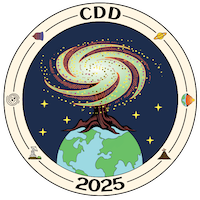Orateur
Description
Rivers act as the primary harmonizer of the critical zone, integrating processes that regulate nutrient cycling, water quality, and energy flow within ecosystems. A deeper understanding of the hydro-biogeochemical processes warrants the study of river chemistry at a detailed temporal resolution, but this is often hindered by logistical challenges associated with traditional sampling and data acquisition.
Recent advances such as the RiverLab “lab-in-the-field” setup now allow sub-hourly monitoring of major ions and physico-chemical parameters, enabling novel insights that were previously eclipsed by coarse sampling. This facilitates inquiries into transient processes e.g. storm events, and aids the modelling and evolution of sources contributing to stream chemistry.
Despite these advancements, challenges remain. Issues such as sensor malfunctions, power outages create data gaps that impede the application of statistical methods, bias the model outputs and obscure patterns of periodicity. Collectively, these pose a risk of misconstruing
water quality trends that can negatively influence policy decisions.
This talk outlines an approach combining Singular Spectrum Analysis and machine learning to “reconstruct” the stream chemistry, countering the aforementioned issues and laying the foundation for a low-cost monitoring-forecasting framework. Additionally, we will also touch upon the application of Dynamic Factor Models (DFMs), as a new tool for source
apportionment from hydro-geochemical time series data.
| Speaker information | PhD 2nd year |
|---|

